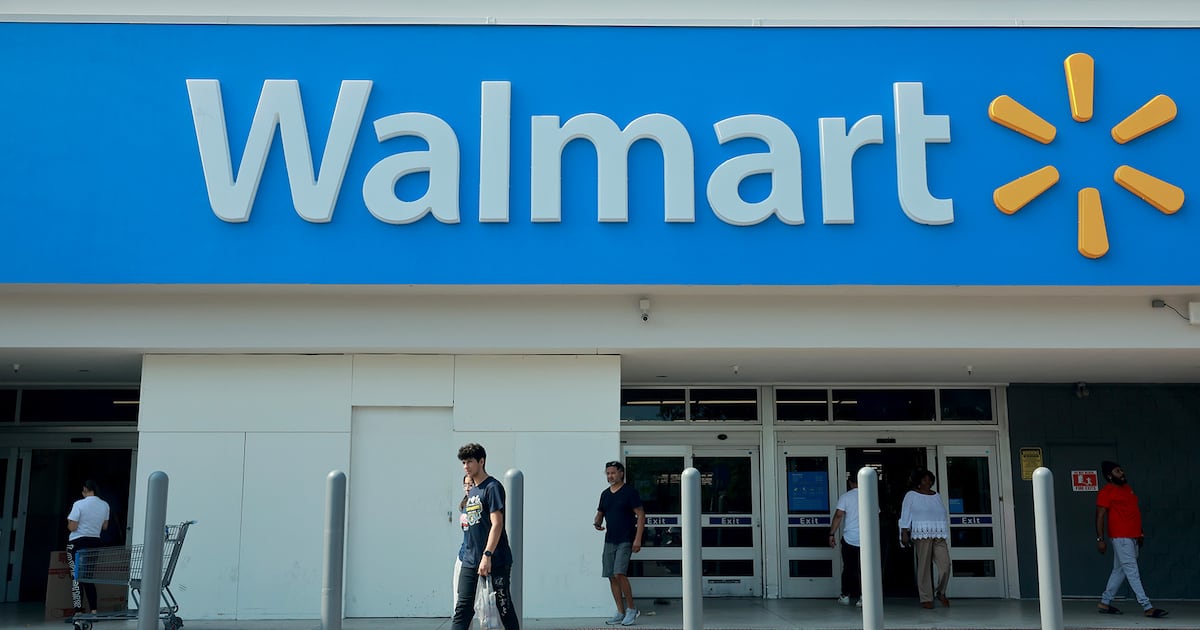The US retail giant Walmart will âeat some of the tariffsâ in line with Donald Trumpâs demands, the presidentâs treasury secretary Scott Bessent insisted on Sunday, claiming he received the assurance in a personal phone call with the companyâs chief executive, Doug McMillon.
A spokesperson for Walmart said the company would not comment on conversations between its executives and administration officials. However, a source familiar with the conversation said the phone call between Bessent and McMillon was arranged many days prior to Trumpâs post â and that the companyâs position had not changed.
Walmart said this week it had no alternative to raising prices for consumers beginning later this month because it could not absorb the cost of the presidentâs tariffs on international trade, which have caused turmoil in international markets.
The statement provoked an angry response from Trump, who posted a rant to his Truth Social network on Saturday saying the company should âeat the tariffs and not charge valued customers anythingâ.
According to Bessent, speaking on Sunday to NBCâs Meet the Press, Walmart is now promising exactly that.
âI was on the phone with Doug McMillon, the CEO of Walmart, yesterday. And Walmart is, in fact, going to, as you describe it, eat some of the tariffs, just as they did in â18, â19, and â20,â Bessent said after host Kristen Welker asked if the president was asking American companies to be less profitable.
âWhat youâre describing was Walmartâs earnings call. The other thing the companies have to do â they have to give the worst case scenario so that theyâre not sued.â
On Thursday, McMillon said in the earnings call that his company, a bellwether of US consumer health, was moving to protect itself against the impacts of Trumpâs tariffs, despite the presidentâs administration announcing a pause in its trade war with China that analysts called âcapitulation dayâ.
âWe will do our best to keep our prices as low as possible but given the magnitude of the tariffs, even at the reduced levels announced this week, we arenât able to absorb all the pressure given the reality of narrow retail margins,â he said.
Walmartâs chief financial officer, John Rainey, told CNBC that the company, which has thousands of stores across the US, was âwired for everyday low pricesâ. But he said the tariffs were âmore than any retailer can absorbâ â and that consumers would begin to see higher prices towards the end of May and âcertainly much more in Juneâ.
Trump announced plans for an unprecedented barrage of tariffs against numerous countries on 2 April, a date he called âliberation dayâ.
For too long, he said, the US had been âlooted, pillaged, raped and plundered by nations near and farâ, and he presented a list of countries and territories that would receive tariffs, ranging from numerous US allies and longtime trade partners to barren, remote islands near Antarctica occupied only by penguins.
The presidentâs strategy, which he insisted would lead to negotiations and trade deals with at least 150 countries, was variously ridiculed and condemned as flawed and unworkable. And it created an ongoing six weeks of chaos with higher prices, crashing stock markets and slowing economic growth.
He has since attempted to walk back many of the excesses of the policy, including this weekâs announcement that, for an initial 90-day period, tariffs on China â a dominant supplier to Walmart and myriad other US companies â would be cut from 145 percent to 30 percent.
The White House called it a âtotal resetâ in trade relations and followed up on Friday by announcing that it would not, after all, negotiate with many of the countries, but instead unilaterally impose new tariff rates.
â[It is] not possible to meet the number of people that want to see us,â Trump told a meeting of business leaders in the United Arab Emirates during his tour of Gulf states.
âWe have 150 countries that want to make a deal, but youâre not able to see that many countries.â
Bessent told CNNâs State of the Union in a later appearance on Sunday that the US was focused on its â18 most important trading relationshipsâ â and that he expected trade talks to continue with a number of countries leading to a series of regional deals.
By Richard Luscombe
Learn more:
Retailers Rush to Save US Summer Shopping Season
Following a temporary US tariff cut on Chinese imports, US retailers are accelerating efforts to import summer merchandise from China, reversing a previous slowdown in orders.

